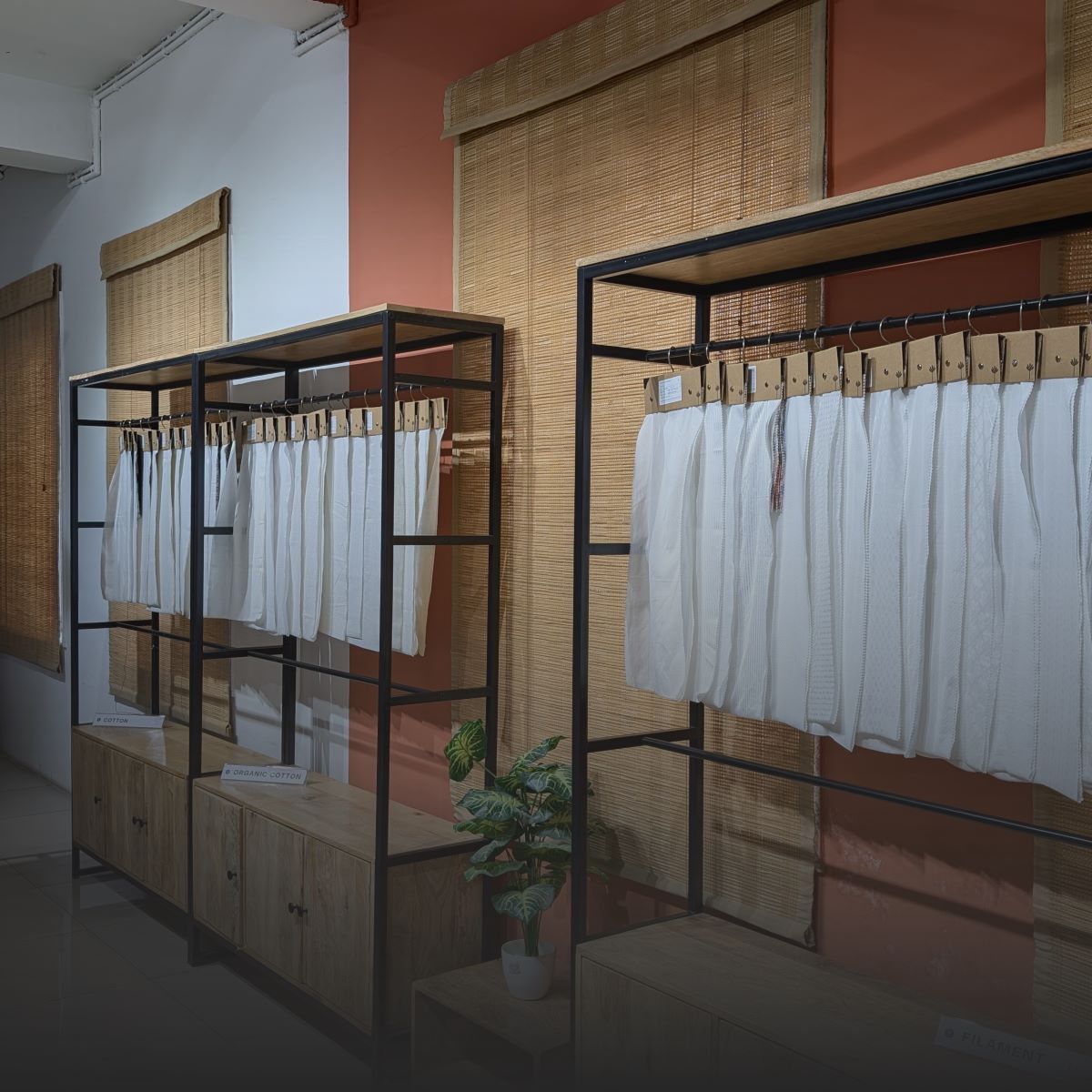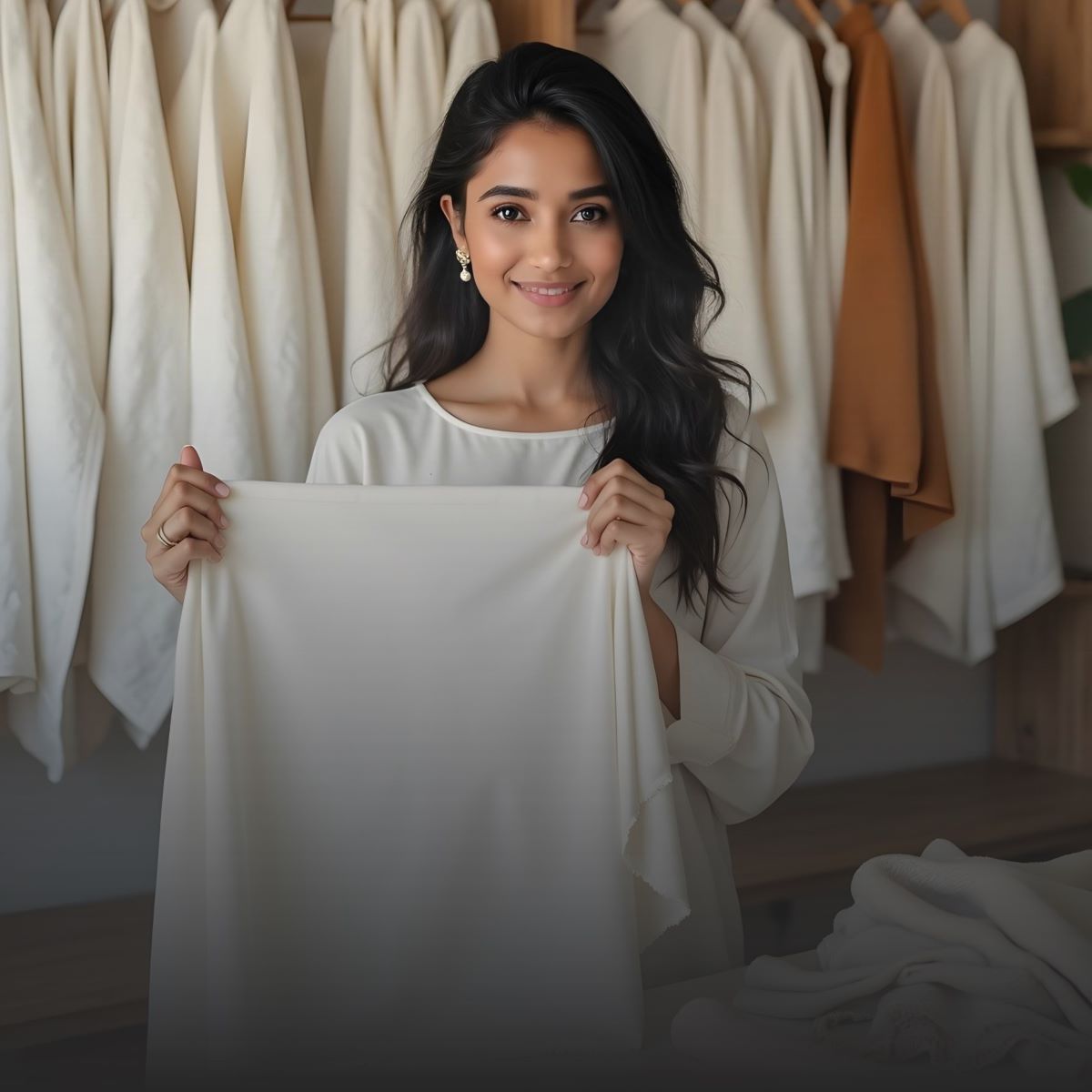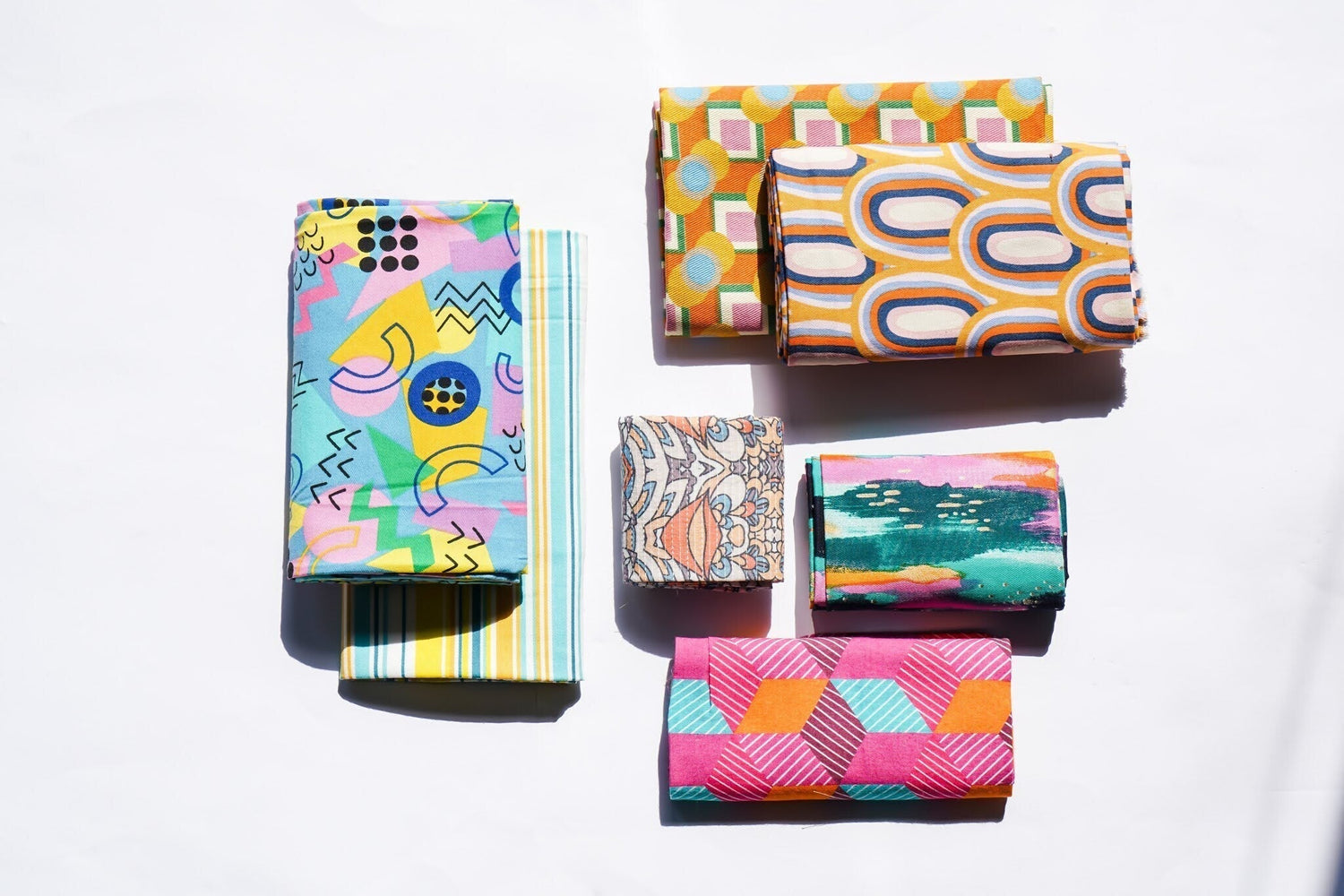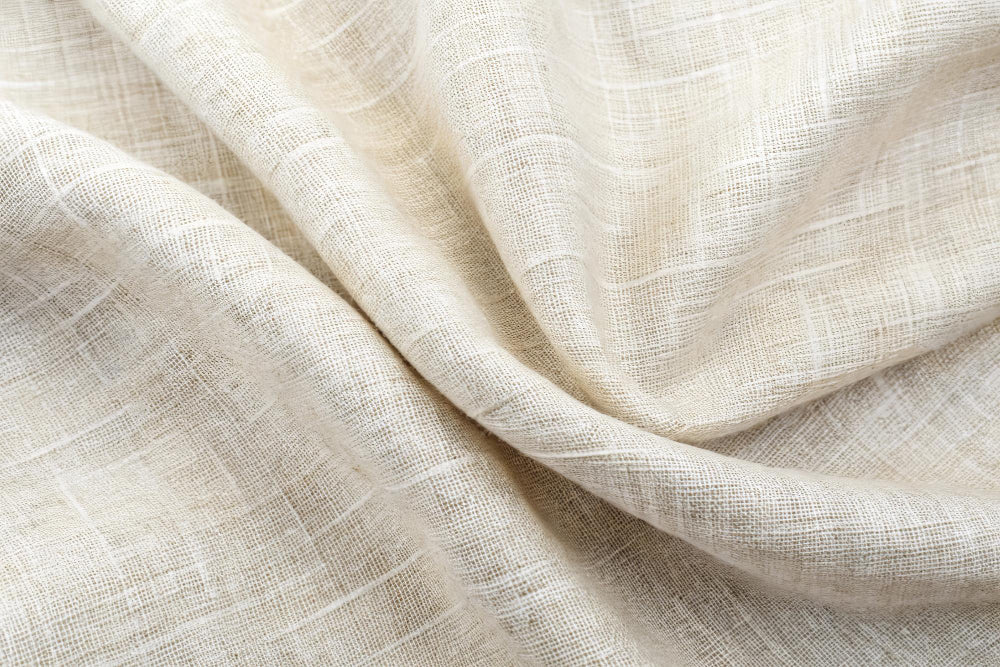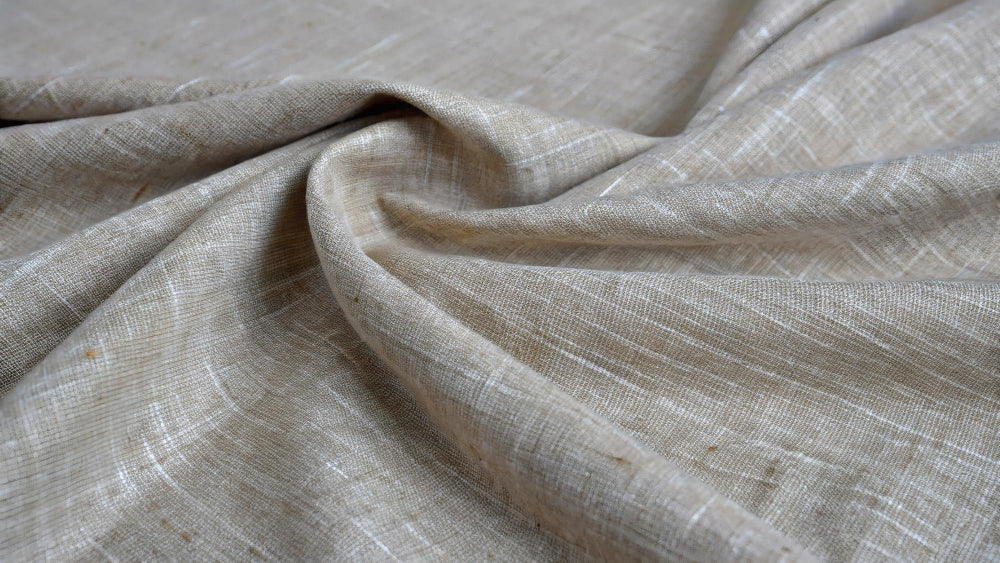RFD (Ready for Dyeing or Printing) fabrics are the building blocks of current textile production. They allow for color customization, digital printing, and the creation of eco-friendly clothing.
These fabrics have already been treated so that they can absorb color, dye precisely, and print consistently. This means that fashion brands have complete creative control over their color stories.
You can go from designer developing seasonal collections to garment exporter or fabric manufacturer if you know which RFD fabrics to use and where to get them. This will make your production process more professional.
Understanding RFD Fabrics — The Foundation of Custom Textile Creation
RFD fabrics are bleached, scoured, and desized to get rid of dirt and natural waxes. RFD stands for Ready for Dye or Print fabrics. This treatment before printing makes sure that the surface is clean with high dye uptake and print precision.
They're great for:
- Digital and screen printing
- Reactive and pigment dyeing
- Hand block and resist printing
- Sampling and small-run production
Why designers prefer RFD fabrics:
- Even color transfer for shades that stay the same.
- The best base for dying and printing that match Pantone colors.
- The feel is soft, breathable, and ready to use.
- Lessens the need for chemicals and water.
- Pre-processing that is environmentally friendly and saves energy .
Types of RFD Fabrics Available for Printing & Dyeing
Fabriclore's RFD (Ready for Dye/Print) line has many woven, knitted, sustainable, and embroidered bases, all of which have already been treated and are ready for color development. Each type of RFD fabric has a different texture, GSM range, and dyeing behavior that can be used to make fashion clothes, home goods, or luxury collections.
1. Woven RFD Fabrics
👉 Explore more: Woven RFD Fabrics | Fabriclore
|
Fabric Type |
GSM Range |
Ideal For |
Dye Type / Print Compatibility |
|
Cotton RFD |
35–520 GSM |
Shirts, dresses, uniforms, home décor |
Reactive, Pigment, Digital |
|
Linen RFD |
120–200 GSM |
Co-ord sets, resort wear, upholstery |
Vat / Reactive |
|
Viscose RFD |
100–180 GSM |
Dresses, blouses, skirts |
Reactive / Disperse |
|
Modal RFD |
90–150 GSM |
Tops, scarves, light apparel |
Reactive / Digital |
|
Silk RFD |
50–100 GSM |
Sarees, dupattas, couture fashion |
Acid / Reactive |
|
Polyester RFD |
120–250 GSM |
Activewear, uniforms, digital prints |
Disperse / Sublimation |
These woven RFD fabrics are great for custom dyeing, hand block printing, and digital print applications. They give creators complete freedom to be creative and provide the quality that's ready for production.
2. Sustainable RFD Fabrics
👉 Explore more: Sustainable RFD Fabrics | Fabriclore
|
Fabric Type |
GSM Range |
Best For |
Key Benefits |
|
ENZING™ Fabric |
90–160 GSM |
Shirts, dresses, blouses |
100% biodegradable fiber with soft drape |
|
LIVA™ Fabric |
90–150 GSM |
Co-ords, womenswear, sustainable lines |
Naturally breathable, made from wood pulp |
|
BEMBERG™ CUPRO |
80–140 GSM |
Luxury apparel, scarves |
Silky finish, static-resistant, plant-based |
|
Organic Cotton |
120–200 GSM |
Kidswear, conscious brands |
GOTS-certified, skin-friendly, eco-safe |
The renewable resources and OEKO-TEX®–certified dyes used to make these eco-friendly RFD fabrics mean that they leave behind minor damage to the environment while still providing excellent comfort and finish.

3. Schiffli RFD Fabrics
👉 Explore more: Schiffli RFD Fabrics | Fabriclore
Schiffli RFD fabrics have complicated machine-embroidered patterns on dyeable cotton or viscose bases, which makes them great for party clothes, vacation collections, and bridal wear.
- GSM: 100–180 GSM
- Applications: Sarees, dupattas, blouses, fusion wear
- Dyeing Compatibility: Reactive / Vat dyes
- Highlight: Embroidery remains color-stable even after dyeing.
The textural luxury with dye-ready functionality of these fabrics lets designers make unique, high-value clothes.
4. Knitted RFD Fabrics
👉 Explore more: Knitted RFD Fabrics | Fabriclore
Knitted RFD fabrics are comfortable and stretchy, making them suitable for clothes that need to move and stretch.
|
Fabric Type |
GSM Range |
Ideal For |
Dye Type |
|
Cotton Jersey RFD |
120–180 GSM |
T-shirts, loungewear |
Reactive |
|
Rib & Interlock RFD |
150–220 GSM |
Tops, dresses, casualwear |
Reactive / Pigment |
|
Viscose Lycra RFD |
160–240 GSM |
Athleisure, activewear |
Disperse / Reactive |
Knitted bases are best for stretchable garments because they keep the colors even and are comfortable over time.
RFD Fabrics by Printing Technique
If you pick the right RFD base, your print will look great and last longer.
|
Printing Method |
Recommended RFD Base |
MOQ |
Best For |
|
Digital Printing |
Cotton, Viscose, Modal, Liva™ |
200 m per design |
Fine-detail artwork & vibrant colors |
|
Screen Printing |
Cotton, Linen, Bemberg™ |
300 m per design |
Bold patterns & large production runs |
|
Handblock Printing |
Cotton, Linen, Organic Cotton |
500 m per design |
Ethnic motifs & artisanal production |
Pro Tip: Order a fabric swatch or sample yardage before you print a lot of them to make sure they will absorb ink, match the color, and print clearly.
Why Fabriclore Is the Trusted Source for RFD Fabrics
Fabriclore is where thousands of designers, brands, and exporters around the world go when they want to find authentic RFD fabric suppliers in India or ready-to-dye fabrics online.
Fabriclore gives you more than just material. It gives you trust, innovation, and consistency through its strong ecosystem of certified textile mills, sustainable processing, and design-focused sourcing solutions.
What Sets Fabriclore Apart in RFD Fabric Sourcing
1. Extensive RFD Fabric Library
You can pick from 300+ RFD-certified fabrics, such as Cotton, Linen, Viscose, Modal, Silk, LivaTM, BembergTM, Organic Cotton, and TencelTM.
Each cloth is OEKO-TEX® certified and has already been treated to make it easier to print or dye.
2. Flexible MOQ and Fast Shipping
Start small (like 100 meters per fabric) and it'll be easy to add more. Orders that are made to order take 10–12 business days, while ready-stock items are shipped in 24–48 hours.
3. Pantone-Matched Customization
This is great for artists who need consistent brand colors. For large orders, Fabriclore does custom dyeing and shade matching.
4. Eco-Friendly, Certified Processes
Low-water, AZO-free, and OEKO-TEX®–approved chemicals are used to make RFD fabrics, which means they are both high-quality and good for the earth.
5. Quality Control & Lab Testing
Over 20 quality checks are done on each roll to make sure it meets standards for GSM, shrinkage, absorbency, and weave accuracy.
6. Global Delivery & Support
Sends packages to 20+ countries with FedEx and DHL, and has a buying team to help with coordinating fabric, dye, and print.
👉 Explore now: Authentic RFD Fabrics for Dyeing & Printing | Fabriclore

How to Source RFD Fabrics from Fabriclore
- Pick the Type of Fabric and GSM — Pick the base cloth you like best.
- Ask for Swatches — Check the feel, thickness, and ability to print.
- Make sure MOQ (100m) — Scale based on the size of the job.
- Accept Quality — Test examples to see how well they absorb and finish.
- Put Things in Order — Fast shipping in 24 to 48 hours (for in-stock items).
- Get Shipments Around the World — Ten to fifteen days for safe delivery.
Common Mistakes in RFD Fabric Sourcing
|
Mistake |
Impact |
Solution |
|
Ignoring GSM & weave |
Poor drape or stiffness |
Match GSM to garment needs |
|
Skipping swatch tests |
Color inconsistency |
Always test before bulk |
|
Wrong base fabric |
Uneven dye/print results |
Confirm compatibility |
|
No QC verification |
Rework or re-dyeing needed |
Source from verified suppliers |
|
Tight timelines |
Delayed production |
Plan 10–15 days for dyeing + finishing |
Applications of RFD Fabrics in Fashion & Home Textiles
RFD fabrics are some of the most useful in current textile design because:
- Apparel: Shirts, trousers, dresses, kurtas, uniforms, co-ord sets
- Home Furnishing: Curtains, cushion covers, table linens
- Accessories: Scarves, stoles, handbags
- Crafts & Printing Studios: Ideal base for block or pigment printing
Sustainability — The Core of Fabriclore’s RFD Process
To have the least amount of damage on the environment, Fabriclore processes its RFD fabrics with eco-safe dyes, low-liquor-ratio machines, and solar-powered dryers.
- AZO-free dyes ensure skin safety
- Water-recycling systems reduce consumption
- OEKO-TEX® certification guarantees ethical processing
Because of this, Fabriclore's RFD line is a good choice for fashion brands and export houses that are conscious.
Quick Recap — Smart RFD Fabric Sourcing Workflow
- Choose fabric type & GSM.
- Order swatches or lab dips
- Approve quality & MOQ (100m)
- Confirm shade & order.
- Receive in 24–48 hrs (stock) or 10–15 days (custom)
Final Thoughts
These RFD fabrics are more than just textile bases; they're what innovation, creativity, and sustainable production are built on.
Finding authentic RFD fabric is the key to long-lasting quality for artists who want to make custom colors, digital prints, or clothes that are good for the environment.
Fabriclore connects traditional textile artistry with modern fashion technology through its certified fabrics, flexible MOQs, fast turnaround, and global reach.
Start your following collection today:
Explore RFD Fabrics for Printing & Dyeing | Fabriclore Wholesale
FAQs: Buying RFD Fabrics for Printing and Dyeing
1. What Is FFD Fabric, And Why Is It Used For Dyeing Or Printing?
A fabric that is Ready for Dyeing or Printing (RFD) has already been bleached, desized, and scoured to get rid of natural flaws and wax. In other words, it is soft, absorbent, and dye-ready, which means it will take in colors evenly and print clearly.
Designers and clothing makers like RFD fabrics because they are easy to work with and give reliable results when using digital printing, screen printing, and reactive dyeing.
2. Which RFD Fabrics Are Best For Digital And Screen Printing?
Cotton, Viscose, Modal, and LivaTM bases are some of the best RFD fabrics for digital printing. They absorb reactive and pigment inks perfectly, making pictures that last a long time and look good. Cotton, Linen, and BembergTM are the best fabrics for screen printing because they keep color layers flat and don't bleed.
Brands print lots of different patterns on these RFD fabrics for fashion apparel, home textiles, and resortwear.
3. What Gsm Range Is Available In Rfd Fabrics?
RFD fabrics come in a GSM range from 35 to 520 GSM, which means that makers can pick weights that work best for different uses.
- Lightweight (35–90 GSM) – for dupattas, dresses, and linings
- Medium (100–250 GSM) – for shirts, co-ords, and uniforms
- Heavyweight (300–520 GSM): for bags, clothing, and furniture. Because it is so flexible, RFD fabric is excellent for making clothes and home decor.
4. Where Can I Buy Authentic RFD Fabric Online In India?
Fabriclore is one of the best places in India to find textiles, and you can buy authentic RFD fabrics online from them. Fabriclore has 300+ RFD-certified fabrics, such as Organic Cotton, Linen, Silk, Viscose, LivaTM, BembergTM, and Cotton.
All of the fabrics are OEKO-TEX® certified, have been dyed without Azole, and are ready to ship in 24–48 hours. Designers, exporters, and sustainable fashion brands from all over the world trust the site.
5. Can I Order Rfd Fabrics In Low MOQ Or Small Quantities?
Yes, designers can buy RFD fabric at Fabriclore starting at just 100 meters per fabric. This is great for pilot collections, small runs, and samples.
This low MOQ flexibility helps new clothing brands try out ideas before making a lot of them. It's easy for fashion houses and startups to use because ready stock can be sent out in 24 to 48 hours, and custom dyeing or printing orders can be given in 10 to 15 business days.
We also happen to be a magnet for suggestions, and would love to catch yours….throw us yours on hello@fabriclore.com
Also Read Related Blog: Who Provides Fabric Dyeing and Printing Services for Fashion Brands?
